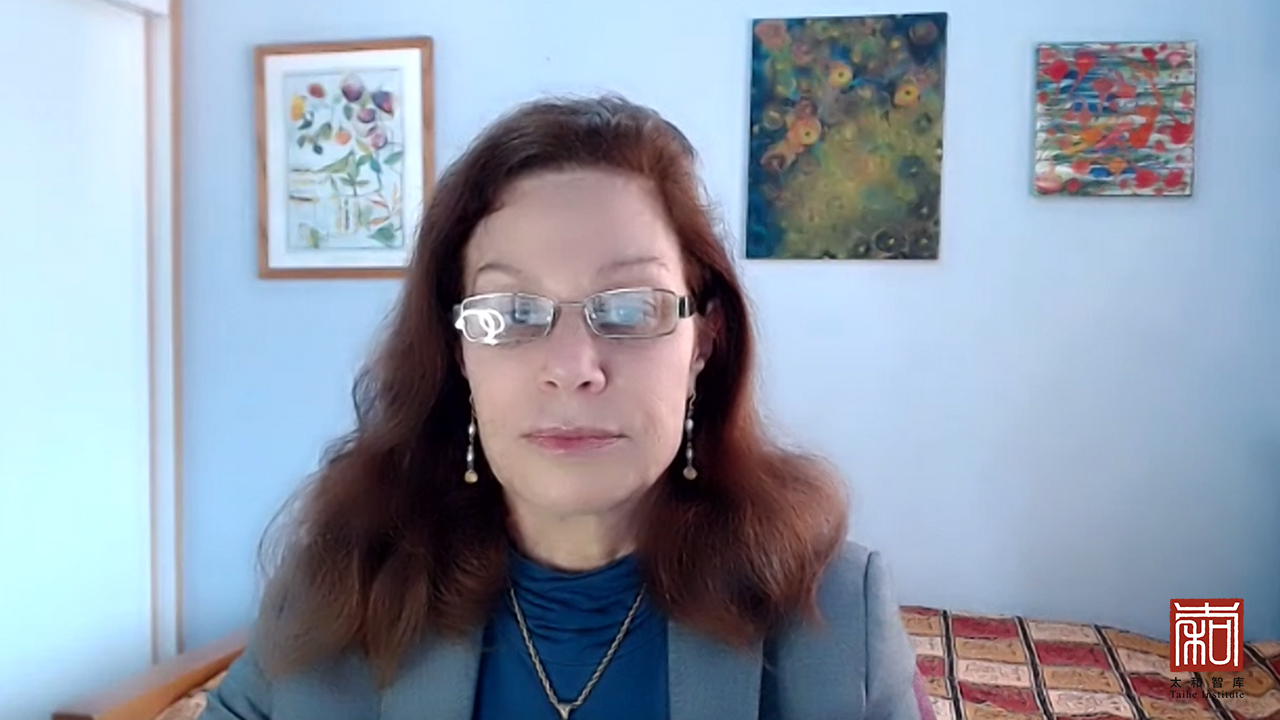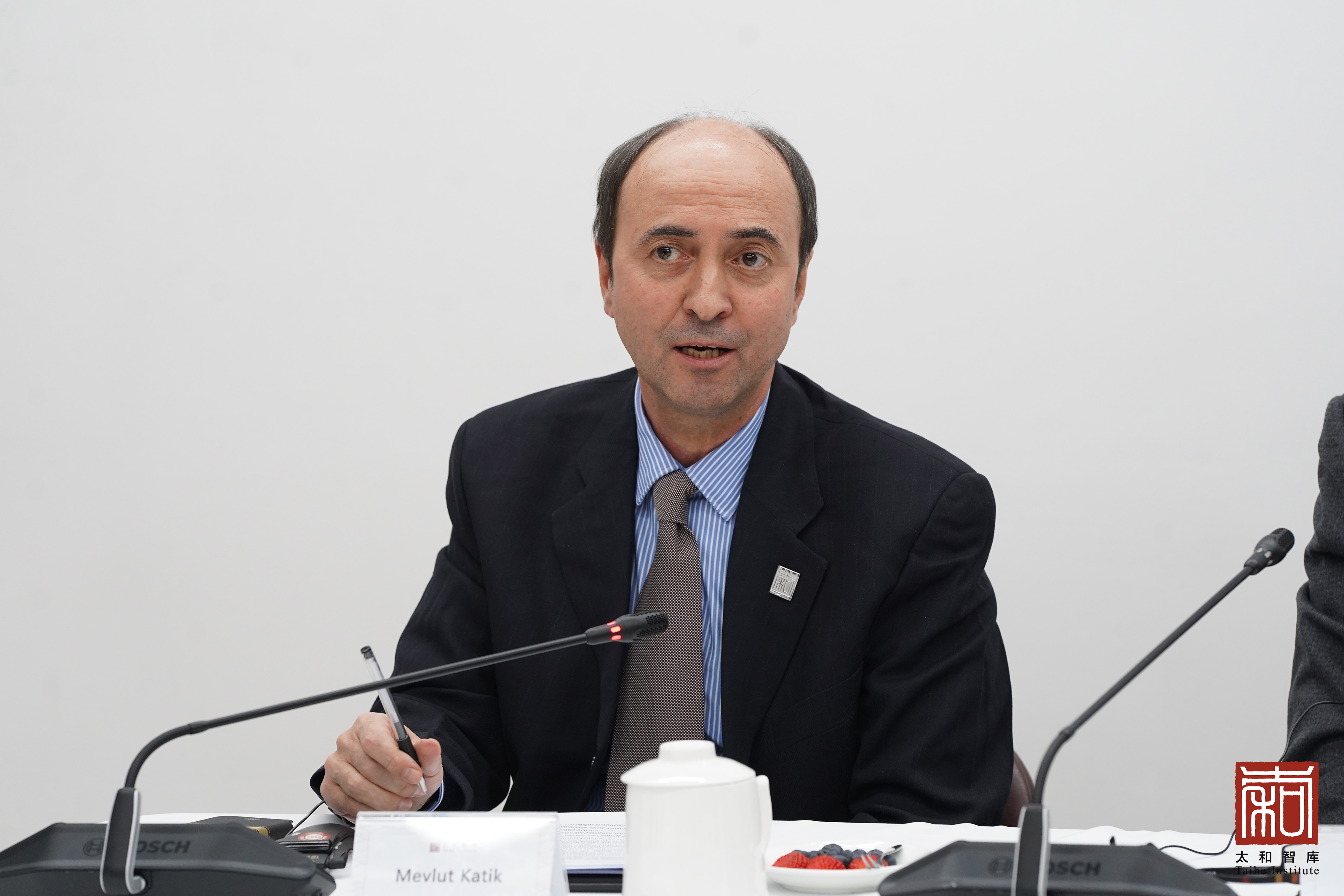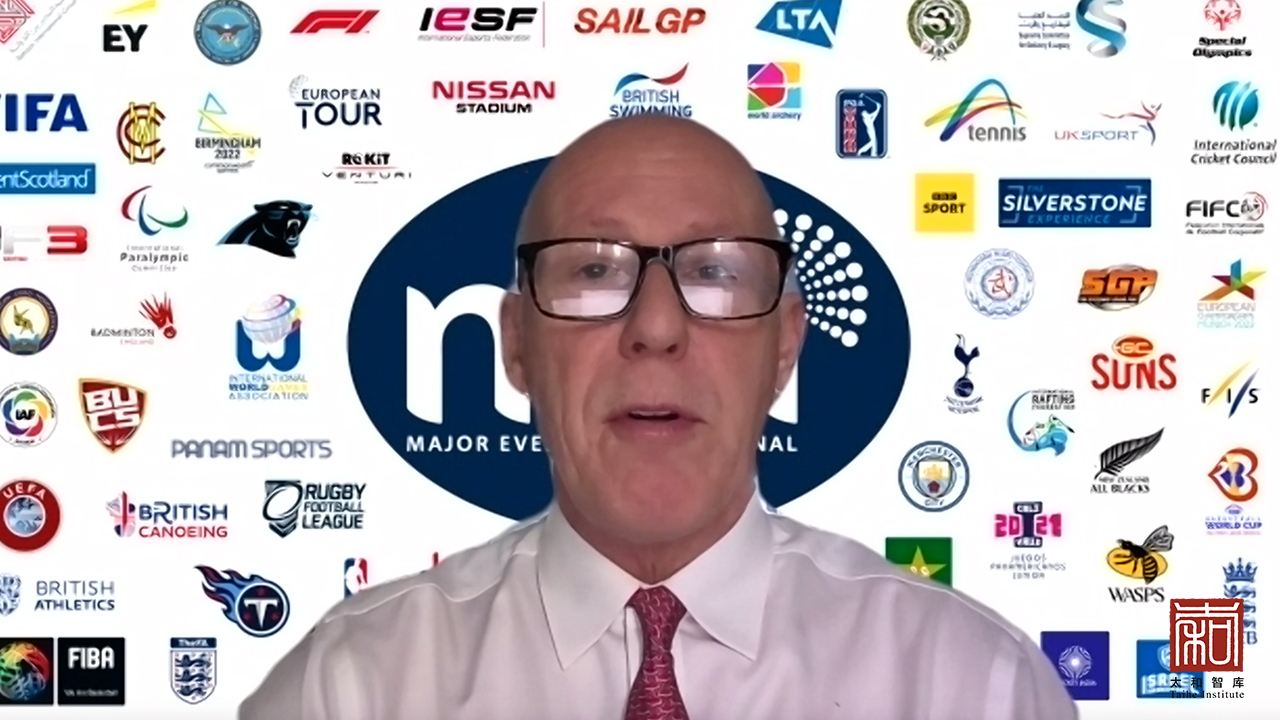The speakers address the seminar
Deputy Secretary-General of the Taihe Institute, Alicia Liu
The Taihe Institute, together with Civilization, a monthly magazine on intercultural and civilizational relations, held a seminar to discuss in light of the new outlooks on civilization, how to interpret, construct and improve the fundamental value of civilization from historical, communicative and other perspectives in the post-pandemic world.
The conference was hosted by Alicia Liu, Deputy Secretary-General of the Taihe Institute and a number of international experts and scholars from the UK, Russia, the U.S., Germany, Israel, Turkey and research fellows of the Institute participated in the conference simultaneously online and offline.
Vladimir Yakunin
Dr. Vladimir Yakunin, chairman of the Dialogue of Civilizations Research Institute, gave a speech on the topic of "Defining Values of Civilizations in the Dialogue of Civilizations paradigm".
Starting from the origins and concepts of civilization, Yakunin explained the new role of civilization in the current context of dialogue with the world through constant renewal and exchange.
He called on all countries of the world to put aside ideological disagreements, reduce strife in the economic and political fields and seek solutions to the problems and challenges faced by collective humanity in the name of human civilization.
 Lou Xiaoqi
Lou Xiaoqi
Lou Xiaoqi, Editor-in-Chief of Civilization, provided a comprehensive explanation on three issues: civilization and the fundamental value of civilization, reflection on the civilizational values in the history of anti-epidemic civilization and the life and health form of civilization. Lou believes that the fundamental value of civilization is to maintain the overall order of healthy life, putting people and life first and the fundamental means of civilization is to effectively build and maintain a healthy and beautiful way of life.
He also expressed his vision of building a healthy civilizational community of human beings and working together for a better future of mankind.
Speaking on the issue of socialism making the West “nervous” and what China can offer the West besides its strong economy, Lou remarked that China had faced the same stage in the last Century but instead of hiding from it in fear, it actively met it. The reason of “fear” is due to a lack of mutual understanding and this is the historical basis for China's continuous deep reform and opening up to the world. It is because of the great differences in ideologies and cognitive approaches between China and the West that the construction of a public discourse system and the search for common standards of human civilization are of great significance in promoting the integration and mutual appreciation of diverse civilizations in the world.
Carice Witte
Carice Witte, Founder and Executive Director at Sino Israel Global Network & Academic Leadership (SIGNAL), drew a comparison between China and Israel in the prevention and control of the COVID-19 pandemic, leading to a discussion of the historical connection between China and the Jewish people, as well as Jewish history and anti-Semitism.
Speaking about the current pandemic situation, Witte pointed out that discrimination and hatred still persist globally; the pandemic is not only a global health crisis but also a big test between countries, societies and individuals which requires people from all over the world to work together to eliminate discrimination and improve mutual understanding among people.
Thorsten Jelinek
Dr. Thorsten Jelinek, Director of the Taihe Institute European Center, spoke on "Political Will is the Only Way to Manage Future Uncertainty". He argued that climate change and digital technology may be decisive factors in the course of human civilization today. Technology is a double-edged sword, and while some negative impacts are inevitable, humanity still needs to rely on technology to address global challenges such as climate change. Even so, technology, like capitalism, has ethical and governance shortcomings in terms of economic equity, social harmony and environmental friendliness, so political "will" rather than technology or empty universality are more conducive to the sustainability of human civilization.
Mevlut Katik
Mevlut Katik, Head of International Communications at the Taihe Institute, noted that the pandemic has created its own fault lines globally and within some societies. More importantly, it has highlighted stark contrasts between the responses from different countries, governments and cultures, which brought to the fore such issues as statism, strong government institutions, the quality of governance, public health system strengthening, societal and cultural confidence and political decision-making based on respect for science and education. The post-epidemic era requires the international community to strengthen cross-cultural exchanges between East and West, promote human cooperation and solidarity, and act and work together to reduce the risks to human civilization, as he quoted from Shakespeare's famous line "What's past is prologue".
Bryan Bachner
Bryan Bachner, Chair of Sports Committee AmCham China and Investment Director (New Economy) for leading PE platform (Beijing), said that sports are a window to show the charm of civilization, which contains civilizational concepts such as fairness, transparency and rule of law.
Although the COVID-19 pandemic has accelerated the spread of populism, sports has always been an important area to unite the strength of nations and to discard ideological and other differences.
Jeff Ruffolo
Jeff Ruffolo, former CNN Olympic correspondent and senior expert to the 2008 Beijing Organizing Committee, believes that the pandemic has made it possible for China and the U.S. to put aside some of their differences and engage in scientific exchanges, thus making significant contributions to eliminating discrimination and promoting equality. He concluded by expressing great wishes for countries to be able to put aside their political and economic differences and turn swords into plowshares.
Dennis Mills
Dennis Mills, CEO of London-based Major Events International and President of Major Events Global Network, presented the benefits of major sporting events as a form of soft diplomacy to strengthen political relations and trade cooperation between countries, noting that the pandemic provides an opportunity for all of humanity to strengthen communication in an equal and friendly manner. He called on the international community to work together in this context to address global challenges and to build a "community of shared future for mankind".
Participants share their views on values of civilizations
The current global pandemic prevention and control situation is still complex and severe. The seminar on the Values of Civilizations organized by the Taihe Institute is dedicated to promoting international public health crisis prevention and control as well as cooperation by exploring the contemporary expression of the core concepts of the values of Chinese and Western civilizations and combining the experiences and lessons learned from the history of epidemic fighting in China and abroad, thus contributing wisdom and strength to building a healthy human community.
—————————————————————
ON TIMES WE FOCUS.
Should you have any questions, please contact us at public@taiheglobal.org
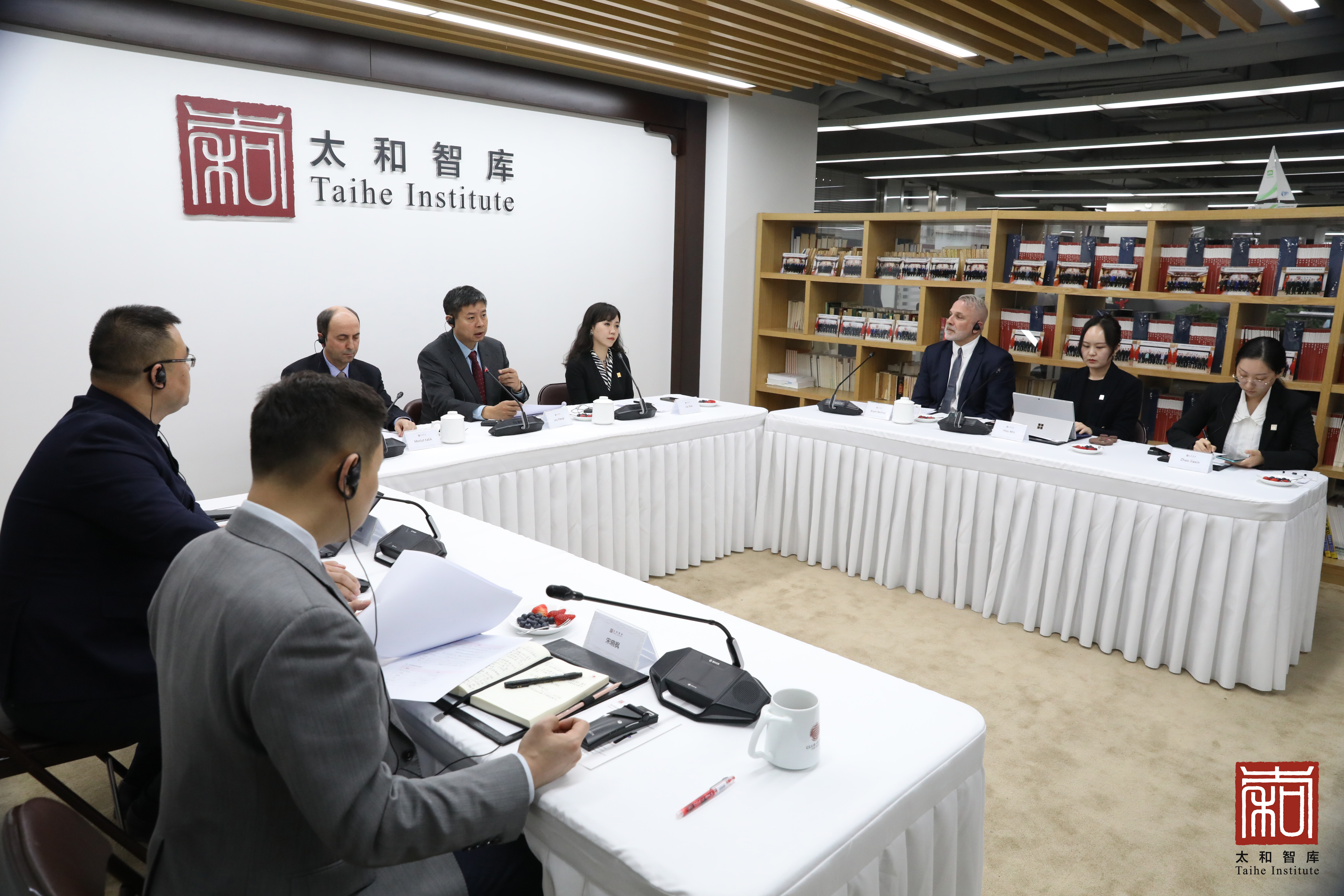
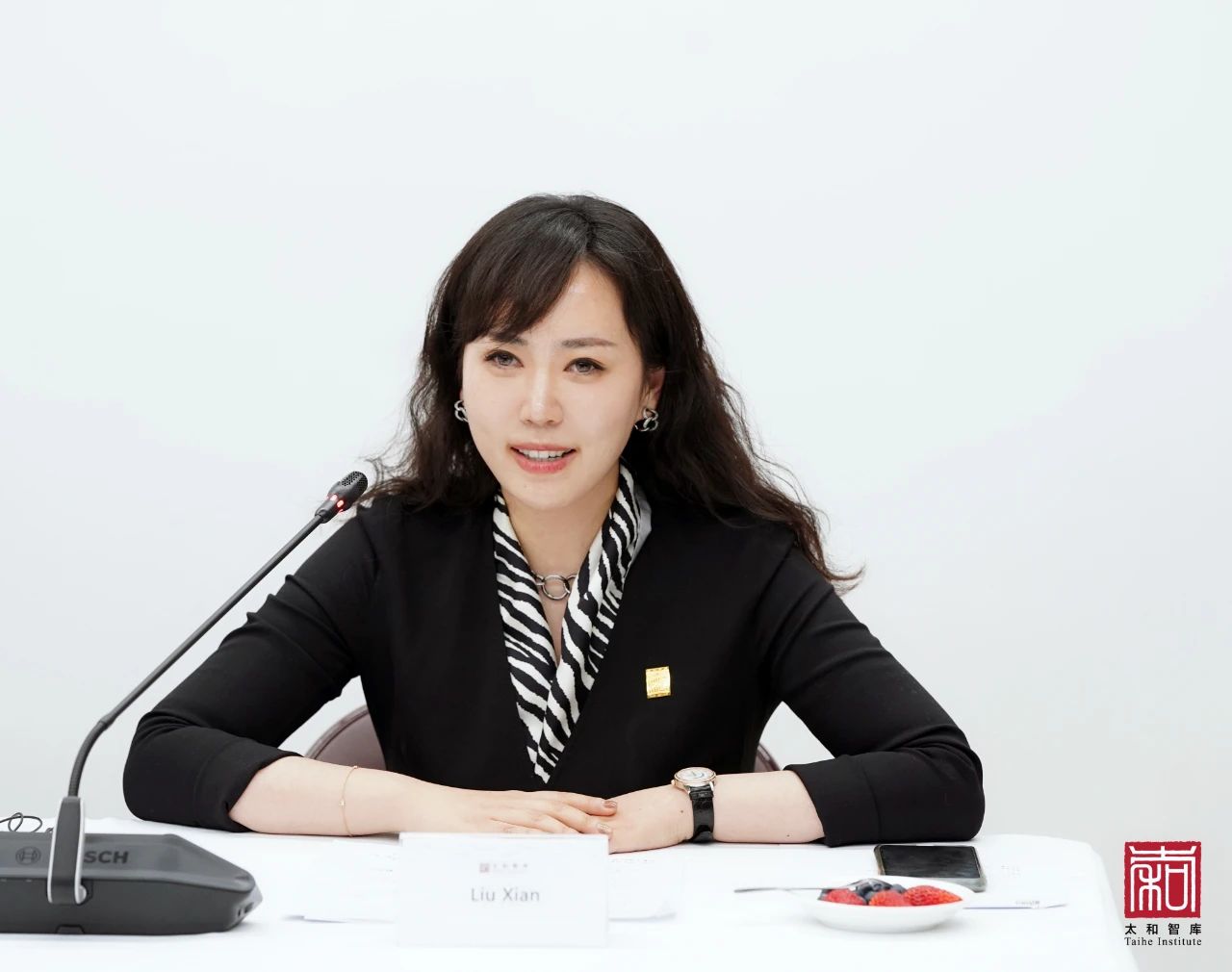
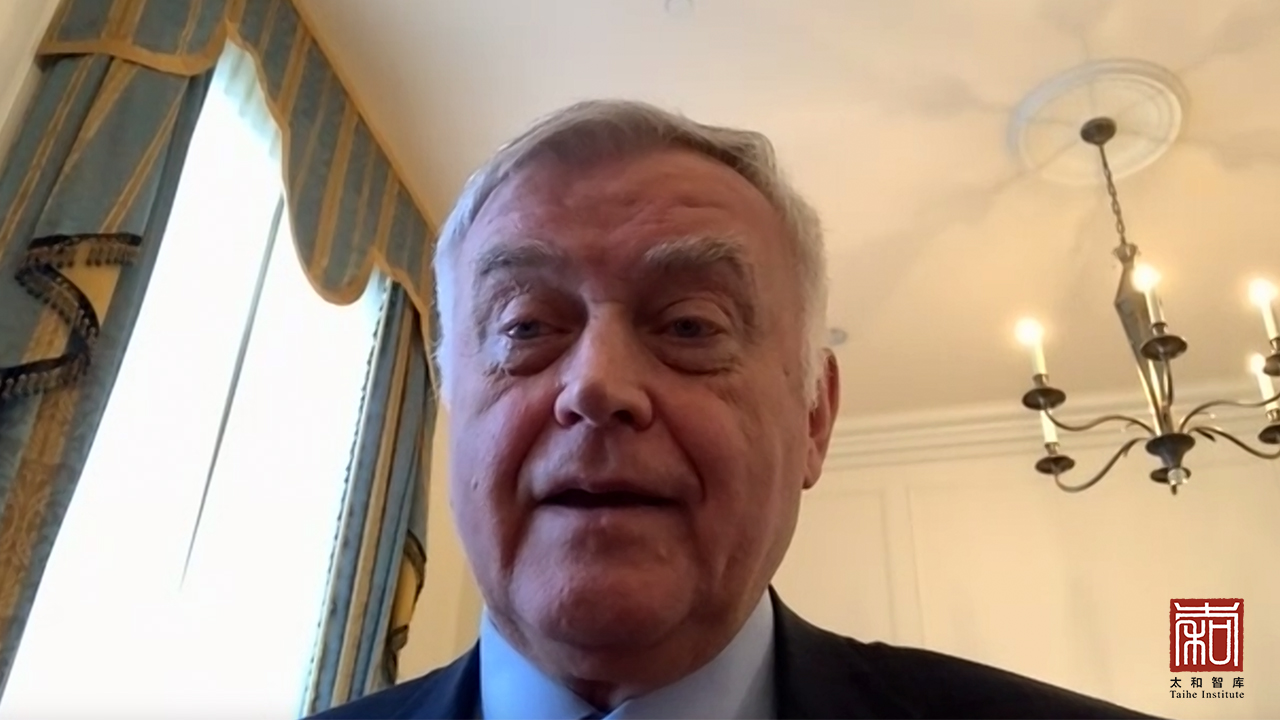
 Lou Xiaoqi
Lou Xiaoqi